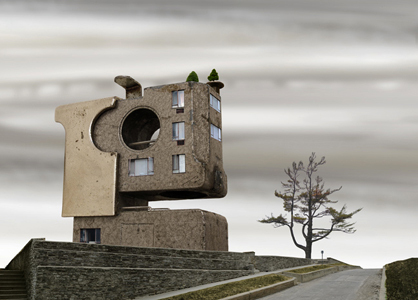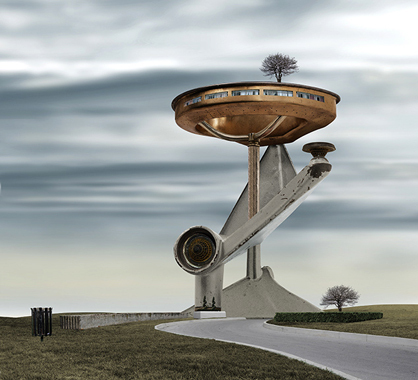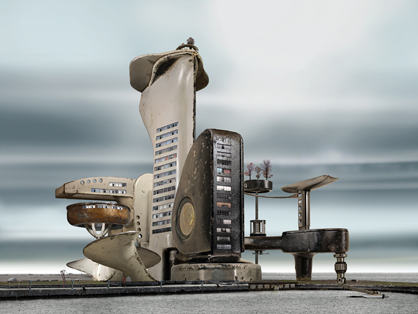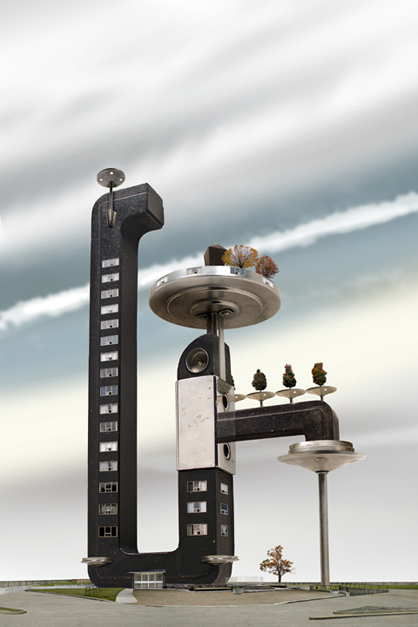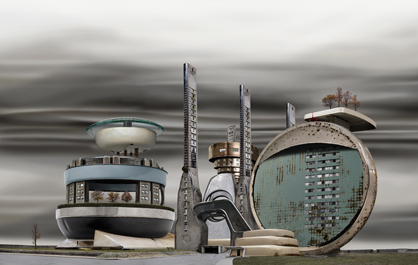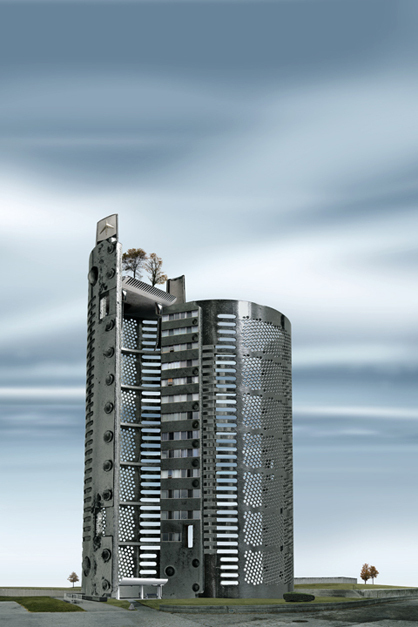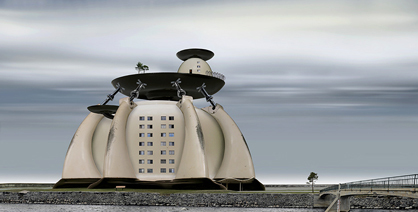Habitat Machines
Texto por Nora Schmidt
Berlin, Alemania
26.03.09
Science fiction – the world after its destruction in the year 2347. This could be a rough description of the first impression created by the photo-montages of the Canadian artist Dave Trautrimas.
Science fiction – the world after its destruction in the year 2347. This could be a rough description of the first impression created by the photo-montages of the Canadian artist Dave Trautrimas. The run-down, futuristic factory buildings consist of thrown-away household appliances, which Trautrimas places in a new context.
By adding architectural elements such as stairs and windows he transforms the utensils into outsize buildings and scaled-up megastructures – perhaps as an analogy to the often unusual proportions of the kind of building that can be seen in present-day Dubai.
The industrial landscapes created by Dave Trautrimas play around with proportions. Will the nozzle of a vacuum cleaner also function on the scale of a 20-storey high-rise building? How does such a building relate to its surroundings, and what effect does it have on its residents?
Dave, you scale up objects and put them into a new context, you basicly transform them into architecture. What brought you to this idea?
To be honest it can be traced back to a childhood obsession with Lego toys. I thoroughly enjoyed being able to take a handful of blocks and creating dozens of objects different in scale & use. As an art student I developed the skills to bring that kind of manipulation to my own source materials, starting with rudimentary digital collages combining corporeal & architectural elements. As my abilities progressed I began looking at common objects as my lego blocks, wondering how I can take them apart and rebuild them into something completely different. This approach was first expressed as architecture in my previous body of work, Industrial Parkland, in which objects such as staplers and lamps where dismantled and turned into a stapler factory or a lamp factory. Habitat Machines is a continuation of that approach, but with residential instead of industrial buildings.
Where do you see the differences between architecture and product design?
Aside from the obvious technical distinctions of construction vs. manufacturing I don't really see a difference. For example a Geary building, or an Eames chair, transend their utilitarian purpose and can be seen as works of art. If done poorly and without inspiration a condo tower can be boring & utilitarian as toilet paper. When it comes down to it how different are the atilliers of Zhaha Hadid & Jonathan Ive? They both strive to bring exceptional design to buildings or products seen & used my the masses, with the only difference being the physical size of what they create.
Some of your works remind me of new architecture in Dubai. What do you think about this developement of mega-sculptures?
I find it incredible and thoroughly enjoying. Its like a race to see how far architecture and construction can be pushed against the limits of cost & sensibility. For example the rotating David Fisher buildings seem absurd, if not precarious, but no where else in the world has the audacity to try something like it. If I'm ever to get one of my creations built it will be in Dubai for sure.
The work of Dave Trautrimas can be seen as part of the 'Visual Morphology' exhibition at New York's Klompching Gallery until 24 April 2009.
